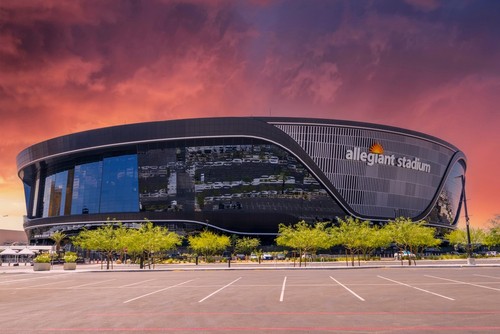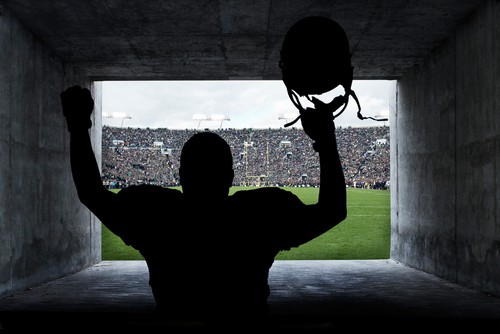How Game Winning Insurance Impacts Super Bowl LVIII
When the Kansas City Chiefs and the San Francisco 49ers kickoff for Super Bowl LVIII, insurance companies will be among the audience of over 115 million people watching the game, but they will be watching for more than scores — they will be watching for risks.
Each year a small army of insurance companies write more than $100 million in policies for just this one game, covering everything from event cancelations to the health and safety of the players to potential damage to the stadium to risks from the pre-game tailgates, and even the worst-case scenario of a terrorist attack.
When it comes to protecting the game itself, typically the risk is too large for just one insurer to shoulder the entire policy. Instead, the risk tends to be spread across a number of insurers who each protect a specific aspect of the event, or even a portion of a specific asset.
And that’s not even counting the millions of individual policies protecting people who are watching the game in their homes or at a sports bar.


Protecting the Superbowl Venue
Allegiant Stadium in Las Vegas is shouldering a lot of risk by playing host to the big game. A lot can go wrong with 65,000 people packed into the stadium.
Protection for the venue begins with a general and liability policy. The liability coverage steps in if someone is injured or something gets damaged and the venue or its staff is at fault.
The venue will also have a personal injury clause in its policy. And while personal injury sounds like someone is getting hurt, these protect against things like defamation or unfair business practices.
Equipment and property insurance steps in to protect from things like weather damage to the facilities, or if fans stormed the field and tore down a goalpost. They also step in if the halftime show fireworks goes awry and damage the playing surface.
Event liability policies protect things like fan fests that are related to but separate from the game itself.
And the stadium will have a workers’ compensation policy to protect its employees and contractors if they are injured on the job.
In cases of terrorism, a federal program called the Terrorism Risk Insurance Program steps in to backstop all of those policies.
Insurance for Superbowl Athletes
Playing a sport is inherently dangerous, and players can lean on insurance policies to protect them.
In the case of an injury on the field, the NFL collective bargaining agreement mandates that the players are covered by a league workers’ compensation policy. They are employees doing a job, after all.
The league also carries coverage to protect them from future disabilities, such as claims of head injuries.
Some highly paid athletes take out insurance policies to protect their contracts, because according to the collective bargaining agreement, players can be cut from NFL teams, meaning the remainder of their contract would be void.
But that often depends on the language of the contract because some include guaranteed elements. For those, the team can purchase insurance policies to protect them if the player is injured and no longer able to perform but still has a guaranteed payday coming their way.
Halftime Performance Insurance
Players aren’t the only ones taking risks on the field. The high-energy halftime performers also are at risk, and they also have insurance policies protecting them.
Since the performers are considered independent contractors, they aren’t generally covered by policies taken out by the stadium, the teams, or even the league.
Each performer is responsible for carrying workers’ compensation policies for themselves and their backup performers and crew. They also must carry general and liability insurance in case their act somehow damages the venue.
The league and the producers also can take out media liability policies, which offer protection in case there are copyright violations or FCC fines for wardrobe malfunctions.
Superbowl Ticket Insurance
For the fans shelling out thousands of dollars to attend the game, they can also turn to insurance policies to protect them from risks.
With tickets to the big game topping out at over $35,000 this year, protecting that investment is a good thing to consider. For that, fans often turn to ticket insurance.
Some ticket policies are offered by the broker selling the ticket. They protect fans if they can’t attend the event for something beyond their control. This includes things like injury, illness, and weather, but some things might not be covered, such as terrorism, epidemics, and mental health issues.
Beyond just buying them at the point of sale, some specialty insurers will sell insurance separately as an add-on.
Ticket insurance is not the same as event cancelation insurance, so if the game gets rescheduled for some reason, this isn’t the policy that would protect the fan. That may require a travel insurance policy.
Travel insurance polices protect the entire cost of the trip in case some unforeseeable and unpreventable event prevents them from traveling. These policies are priced based on the total cost of the trip. In order to secure travel insurance, typically the traveler must purchase the policy within a few days of booking the trip.
These policies pay out for things outside the traveler’s control unless it is a more costly “cancel for any reason” policy.
Once the fan makes it to the game, some policies protect them when they are enjoying the pre-game tailgate.
Say an exuberant fan bumps into the portable grill, knocking the hot coals into the trunk. That is the purview of an auto insurance policy.
On the other hand, if that exuberant fan ends up getting sued for that damage, the liability portion of their homeowner’s or renter’s policy, along with a separate umbrella liability policy, would protect them.
Home Insurance for Game Day
Most fans never make it to the stadium and instead enjoy the game from the comfort of a couch or a sports bar.
If someone is throwing a Super Bowl party and one of their guests gets injured, the host’s homeowner’s insurance steps in through its liability and accidental medical portions. Accidental medical will write a check, no questions asked up to a small limit, such as $5,000, if someone is hurt in the home. It is meant as a way to help in good faith and potentially ward off future lawsuits.
In the case of a kitchen or grill fire, again the homeowner’s policy will step in to cover any damage. If the homeowner had a monitored alarm or even better, a built-in sprinkler, they may even get a discount on that policy. And while it might not earn a discount, having fire extinguishers and fire blankets on hand are easy ways to prevent a claim in the first place.
If a guest to the party overindulges and then drives home, in some states the host is on the hook for any liability. These are called social host liability laws.
If someone does find themselves in that unfortunate situation, their homeowner’s or renter’s policy will likely protect them through their liability clause.
If the party is at a sports bar or restaurant instead, the business will have a host of policies protecting them, including business general and liability policies, worker’s compensation, and a business owner’s policy — not to mention a liquor liability policy.
Sports Betting Insurance
Since the game is being held in Las Vegas, a conversation about sports betting might be in order. And few things are inherently as risky as sports betting.
While traditional insurance companies don’t typically protect fan bets, there is a product on the market known as betting insurance.
These are less like a traditional insurance policy as it is a promotion run by the sports betting book.
The two basic types of betting insurance are bet insurance and cash-back insurance. Cash-back insurance is far less common than bet insurance. Both operate in a similar way, but they differ in what you get paid if its criteria are met. Bet insurance simply pays out credits that can be used for future bets, while cash insurance would give it in hard currency.
Typical betting insurance will cover very specific scenarios and then return the amount of the bet in case the better loses — up to a limit.
For example, some books offer parlay insurance. A parlay is where a better strings together several different bets into one overarching bet. Say they bet on who is going to win, whether the coin flip would be heads or tails, who will score the first touchdown, and who will be leading at halftime.
These are very hard bets to win, so parlay insurance would pay out if most, but not all of the legs of that bet are won. If that better had guessed everything right, but picked heads instead of tails, they would lose the entire parlay. But if they had parlay insurance, they may get their initial bet back as either cash, or more typically, credit to make another bet at that same sports book.
Other types of bet insurance include overtime insurance, which refunds the bet (again, typically as a betting credit) if a team loses in overtime. Similarly, third quarter insurance protects the better if the team is leading in the third quarter, but then collapses in the fourth.
Fantasy sports insurance is even available that protects the better in the case that one of their key players is injured.
Advertising Insurance
For many fans, watching the Super Bowl is more about watching the ads than the game itself.
Even advertising has insurance protecting elements of it.
Advertising liability insurance is a type of professional liability that pays out in case an advertising agency is sued for not fulfilling the terms of their contract or if it creates an ad that doesn’t meet the client’s specifications.
It can also protect the venue and the television network if the ad is not aired according to the contract because of something beyond their control, and the advertiser demands their money back.
While the advertiser may have a viable lawsuit against an ad agency if the ad failed to meet some technical specification, that doesn’t mean the advertiser holds no risk.
That’s because if the company just made a bone-headed creative choice for their ad, no insurance can save them from themselves.
Michael Giusti, MBA, is senior writer and analyst for InsuranceQuotes.com
